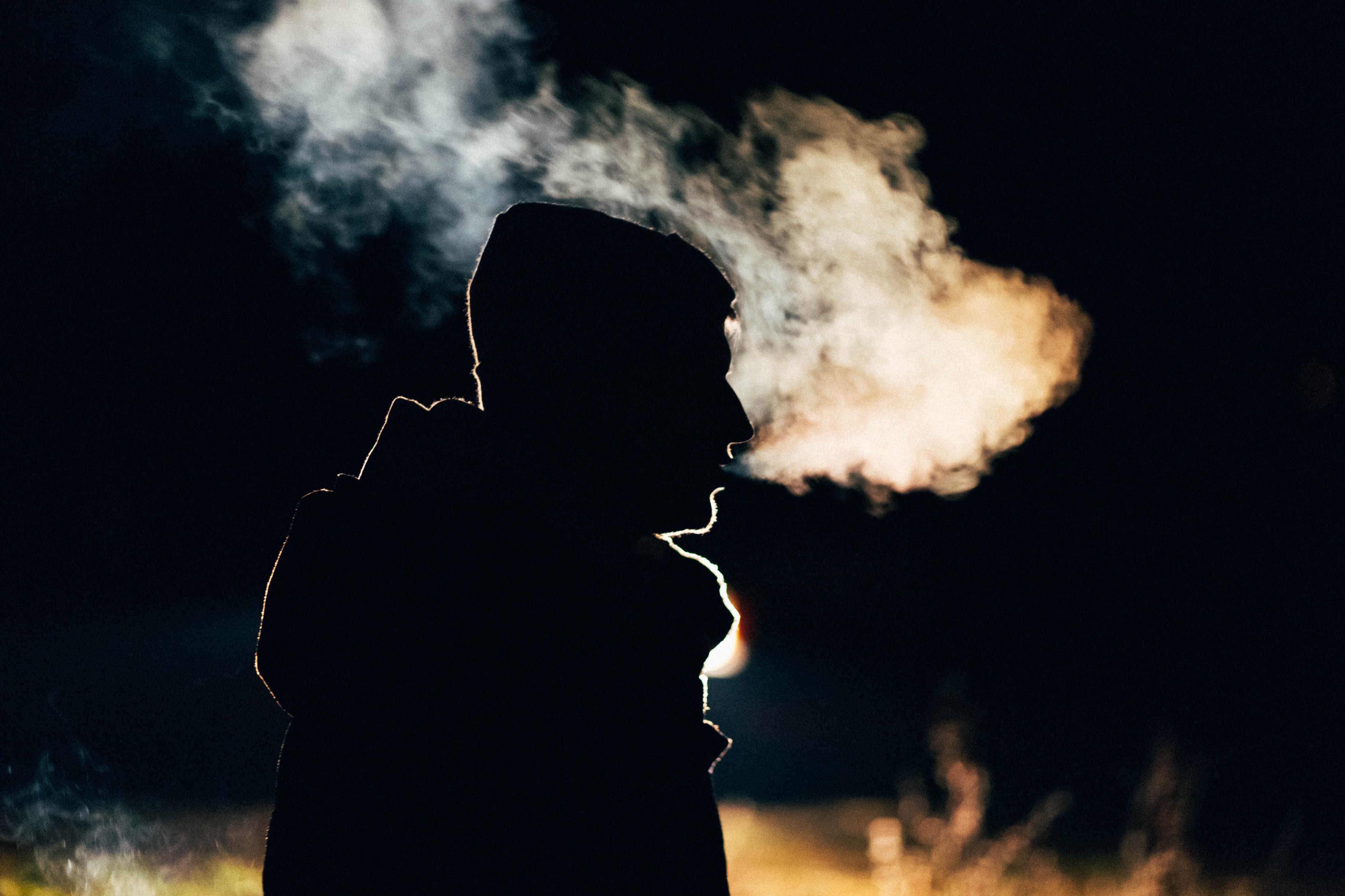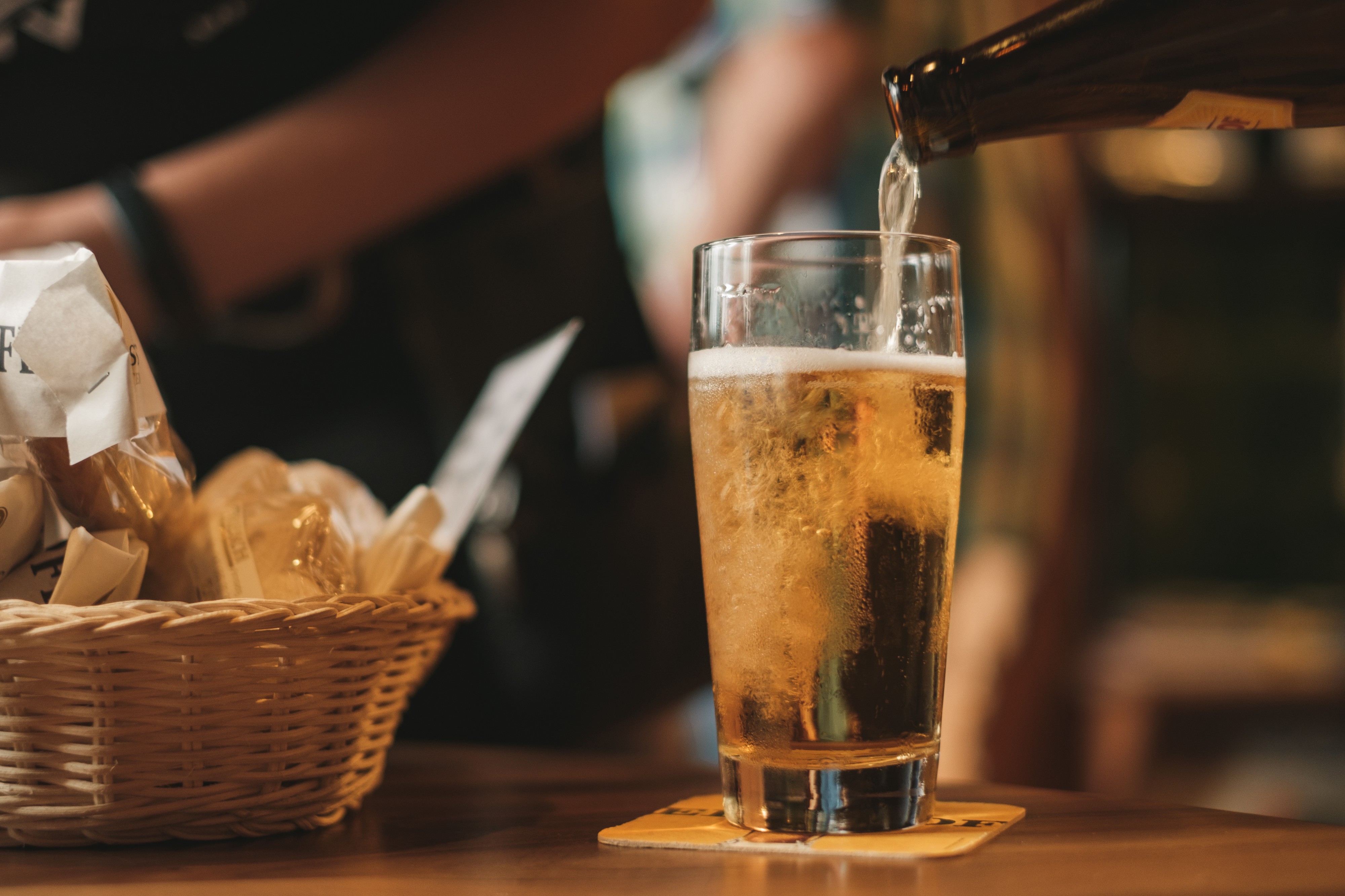And what about beer? Do our favorite drinks actually strip needed water our of our bodies?
 ?Gosh, I love coffee! Let me stare creepily into your eyes as I drink this. This way, you can see how I enjoy it? I?d probably sacrifice you for coffee. Without a second thought.? Photo by Gian Cescon.
?Gosh, I love coffee! Let me stare creepily into your eyes as I drink this. This way, you can see how I enjoy it? I?d probably sacrifice you for coffee. Without a second thought.? Photo by Gian Cescon.
I need to start this article by making a confession: for the last two and a half years, I?ve been caffeine free.
I hate admitting this truth, because this makes me seem like one of those tech weirdos. Someone like Jack Dorsey, the CEO of Twitter, who advocates for fasting 23 hours per day and doesn?t eat anything on most weekends. Someone who might buy from Ambrosia, the startup that gives blood infusions from young men to older people, believing that it may help slow aging. Giving up caffeine seems like the first step towards adopting a crazy fad diet that turns me into an ever-spouting cultist.
I made the choice to give up caffeine due to morning headaches. I felt like I couldn?t wake up without caffeine, so I decided to cut it out of my life. In a response that, in hindsight, may have been a bit of an overreaction, I decided to cut the drug out of my life.
I won?t, however, give up my morning coffee. I?ve switched to decaf, but I still need that taste in the mornings. Similar to a beer in the evening, it?s more psychological than physiological, but I still enjoy a freshly brewed cup of coffee, with just a hint of cream.
But when I drink my morning cup of joe, am I dehydrating myself? According to common belief, both coffee and beer, despite being liquids, actually end up removing more water from our bodies than they add.
Is this true? Do I need even more water to balance out any coffee or beer?
Hydration Vs. Diuretics
First, let?s talk about hydration.
As we all know, our bodies are mostly made of water. We are, in essence, large, squishy, moving water balloons. But we don?t just need water to maintain our form; we use it in a wide number of different physiological processes.
Water plays a vital role in shuttling nutrients around our body to feed our cells, keeps our joints lubricated and moving smoothly, and is an essential component for the proper functioning of our internal organs, like our lungs, liver, stomach, intestine, and kidneys. Water even influences our brain, and studies suggest that drinking more water has a positive impact on our moods. (To counteract the scary headlines, try downing a few shots ? not of alcohol, but of water!).
We constantly use and lose water through a variety of different processes. We lose most of our water through four processes:
- Urination. We need water to help flush waste substances from our body.
- Defecation. Feces contain a lot of water ? otherwise, they?d be too hard and painful to pass.
- Sweating. We use evaporating water to cool our bodies.
- Breathing. Oxygen transfer only happens when air is humid, so we let water evaporate in our lungs to help us take in oxygen. (This is why we can blow out steam on cold days ? that steam is our lost water, freezing in the air.)
 It?s like watching his life slip away, blown out from his lungs. Water really is life. Photo by Pavel Lozovikov.
It?s like watching his life slip away, blown out from his lungs. Water really is life. Photo by Pavel Lozovikov.
Our hydration problems can be exacerbated when we consume substances that are diuretics ? that is, substances that stimulate our body to urinate more. Both caffeine and alcohol are diuretics. They both cause our body to urinate more.
It?s easy to conclude that, because these two components are diuretics, increased urination means increased dehydration. However, the truth is more complex than that.
(Sometimes) Putting In More Than They Take Out
Caffeine and beer both lead to increased urination. However, they are also consumed in a beverage ? that is, with a whole bunch of water. Do these two effects, pulling in opposite directions, balance out?
For coffee and tea, the answer is that the water in the drink is greater than the dehydrating effect of caffeine. When you drink coffee or tea, you will end up urinating more ? but you get more water into your system, so you end up coming out ahead.
For this reason, drinking coffee or tea should be considered as a good, hydrating activity.
(Although, one note: high blood sugar also leads to increased urination to remove some of the excess from the body! So when consuming especially sugary caffeinated beverages, or for diabetics, sugar may add an extra diuretic component to coffee drinks.)
What about beer?
 ?Man, I?m gonna need to pound some serious water after I drink this, bro.? Photo by Gerrie van der Walt.
?Man, I?m gonna need to pound some serious water after I drink this, bro.? Photo by Gerrie van der Walt.
For alcohol, the shift from ?hydrating? to ?dehydrating? depends on the percentage ? and it changes at a surprisingly low percentage. When a drink is 1% alcohol or lower, it?s hydrating ? it will have more than enough water to offset the diuretic effect of alcohol.
Once an alcoholic drink reaches 4?5% alcohol by volume, however ? the level of most beers ? it?s no longer hydrating. When you consume 200 ml of a typical 5%-strength beer, you end up urinating approximately 320 ml of water ? you?re losing water!
This effect grows stronger with higher alcohol content. If you switch to wine, mixed drinks, or shots, you can expect to grow increasingly dehydrated with each extra drink you consume.
So, should we add extra water to our planned consumption whenever we happen to indulge in a coffee or a beer? Or are we covered, since these drinks are, you know, liquids?
For coffee and tea, we?re good ? we?re taking in more liquid than we lose to extra urination. We may want to cut back on the amount of sugar in these drinks, but that?s a whole separate story.
For alcoholic drinks, on the other hand, we should try and add in extra water to replace what we?re losing ? the alcohol takes out more water than we gain from the drink itself. As an additional benefit, drinking a glass of water for each alcoholic drink consumed, right before bed, will help lessen the hangover effects the next day.
As with so many other things in life, it?s all a matter of moderation and levels ? but at least we don?t need to worry about dehydration as we drink our first cup of coffee (or, in my case, decaf coffee).
Sam Westreich holds his PhD in genetics, focusing on methods for studying the gut-associated microbiome. He currently works at a bioinformatics-focused startup in Silicon Valley. Follow on Medium, or on Twitter at @swestreich.
Have a science-related question? Comment to suggest a topic for my next story. Or check out this related story:


